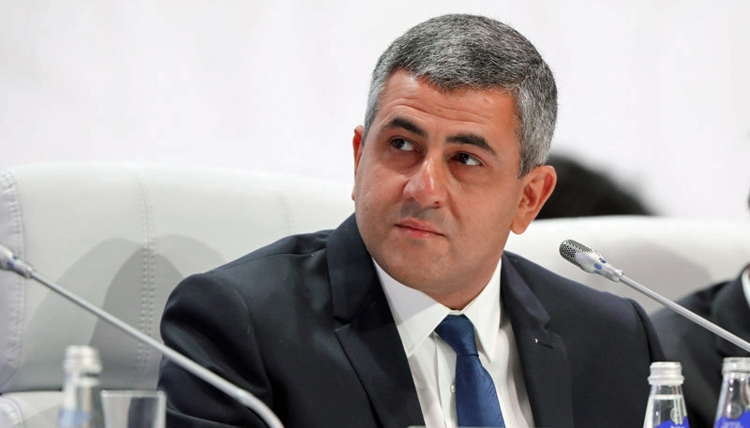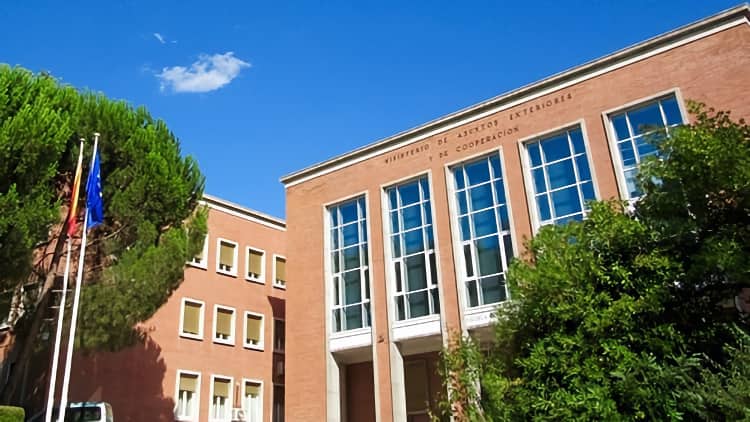Alberto Rubio
At the end of 2017, the World Tourism Organization (UNWTO) accumulated a net deficit of more than three million euros. In 2018, at the end of the first year of the current secretary general’s mandate, the organisation’s accounts showed a positive balance of 468,839 euros, according to the report on human resources that will be submitted for consideration by the next General Assembly.
The UNWTO thus responds to the criticisms voiced by a dozen of its former senior officials, headed by former Secretary-General Taleb Rifai. Precisely his successor in office, Zurab Pololikashvili, recalls, in a letter to UNWTO members, that “in document A/24/5(c) submitted for consideration by the General Assembly, you will find all the necessary information on the unprecedented efforts made since 2018 to progressively strengthen the transparency and accountability of the Organization and to establish an internal oversight function which, prior to 2018, had not found the necessary support from the previous Directorate”.
In this regard, the document notes that “despite the fact that the General Assembly expressly requested the Secretary-General in 2011 (Taleb Rifai) to implement an internal audit at UNWTO (…), no action was taken until 2018 regarding an internal evaluation and audit”.
The “critics” led by Rifai last week sent an open letter to the media and member countries of the organisation in which they propose “a secret ballot” to launch a new process for the election of the secretary general at the next UNWTO General Assembly, to be held in Madrid from 30 November. This is an attempt to overturn the decision of the Executive Council on 19 January, which recommended Pololikashvili’s continuity as head of the organisation, with a resounding 76% of the votes, against the candidate backed by Rifai, the former Bahraini Minister of Culture and member of the royal family, Mai Al Khalifa.
In this sense, sources within the organisation recall that “it is customary for all UN agencies to vote by consensus when there is only one recommended candidate, and this has been the case at the UNWTO since 1975”.
To support their allegations, the “critics” freely interpret a report by the UNWTO’s Ethics Officer, which does not conclude or even present any indications of irregularities, nor is it based on concrete facts.
The UNWTO report underlines that for the first time two audits were carried out at the UNWTO – by the independent consultancy KPMG in 2018 and by the UN itself in 2021-. In both cases, according to UNWTO, the audit firm presented a comprehensive report to the General Assembly “with recommendations on concrete actions to establish an appropriate governance, risk and compliance system”, which the current Secretary-General has been implementing after informing the Executive Council and endorsement by the General Assembly.
Therefore, the current UNWTO Secretary-General considers the accusations made by the former UNWTO staff “disheartening and alarming”, “considering that, having served the Organization for years, they should, more than anyone else, protect and defend its image and integrity”. Pololikashvili recalls that “by entering into contractual relations with UNWTO, every staff member, including myself, promises not to interfere unduly in the affairs of the Organization and those of the governing bodies during the time they serve, as well as after the termination of the employment relationship”.
“Unfortunately,” he adds, “in the run-up to our General Assembly, this promise has been broken, not once, but several times” and regrets “that these attacks are nothing more than a sustained attempt to manipulate and obstruct the decision-making processes of the Organization”.
“It is even more worrying,” he continues, “when, during the time served by the previous UNWTO representatives, signatories of an open letter, irregularities were committed and many important Member States withdrew, a situation that the organisation has been trying to remedy ever since. During the mandate of Francesco Frangialli, who despite not signing the charter has expressed his support for it, Belgium, Finland and the United Kingdom left the Organisation. While under his successor Taleb Rifai, who did sign the charter, Australia, Canada, Latvia and Norway left the UNWTO.
Finally, Pololikashvili clarified, with regard to the election of the Secretary General, that “both the procedure and timetable, adopted by the Executive Council at its 112th session, and the date and venue of the 113th session, were strictly respected”. It calls for “respect for the decision-making processes through our governing bodies”.







